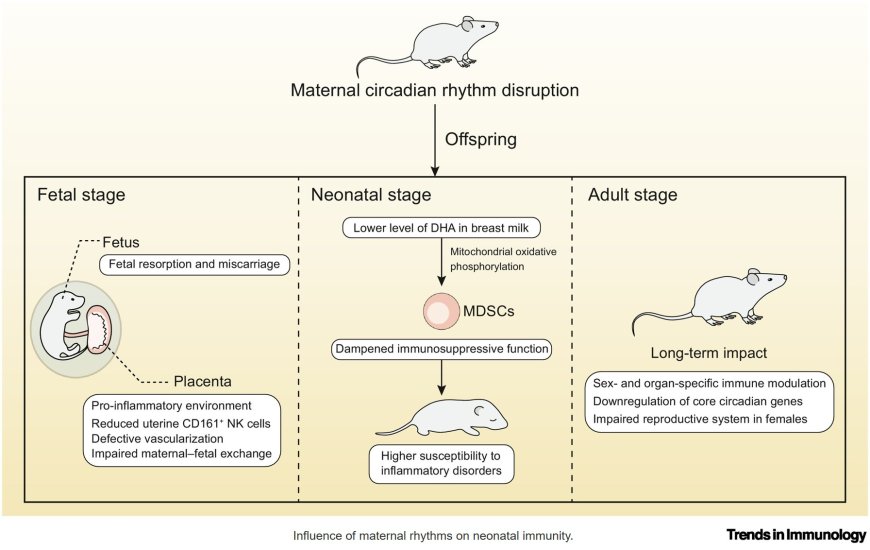Development of a circadian immune system

Circadian rhythms emerge early during development and further mature postnatally.
Maternal circadian rhythms influence neonatal immunity through fatty acids in breast milk, regulating the immunosuppressive function of neonatal myeloid derived suppressor cells.
Mothers with circadian rhythm disruption confer increased susceptibility to inflammatory disorders in their offspring.
Circadian rhythm disruption in parents induces long-term immune consequences in the offspring, persisting into adulthood.
https://www.cell.com/trends/immunology/fulltext/S1471-4906(25)00161-9













